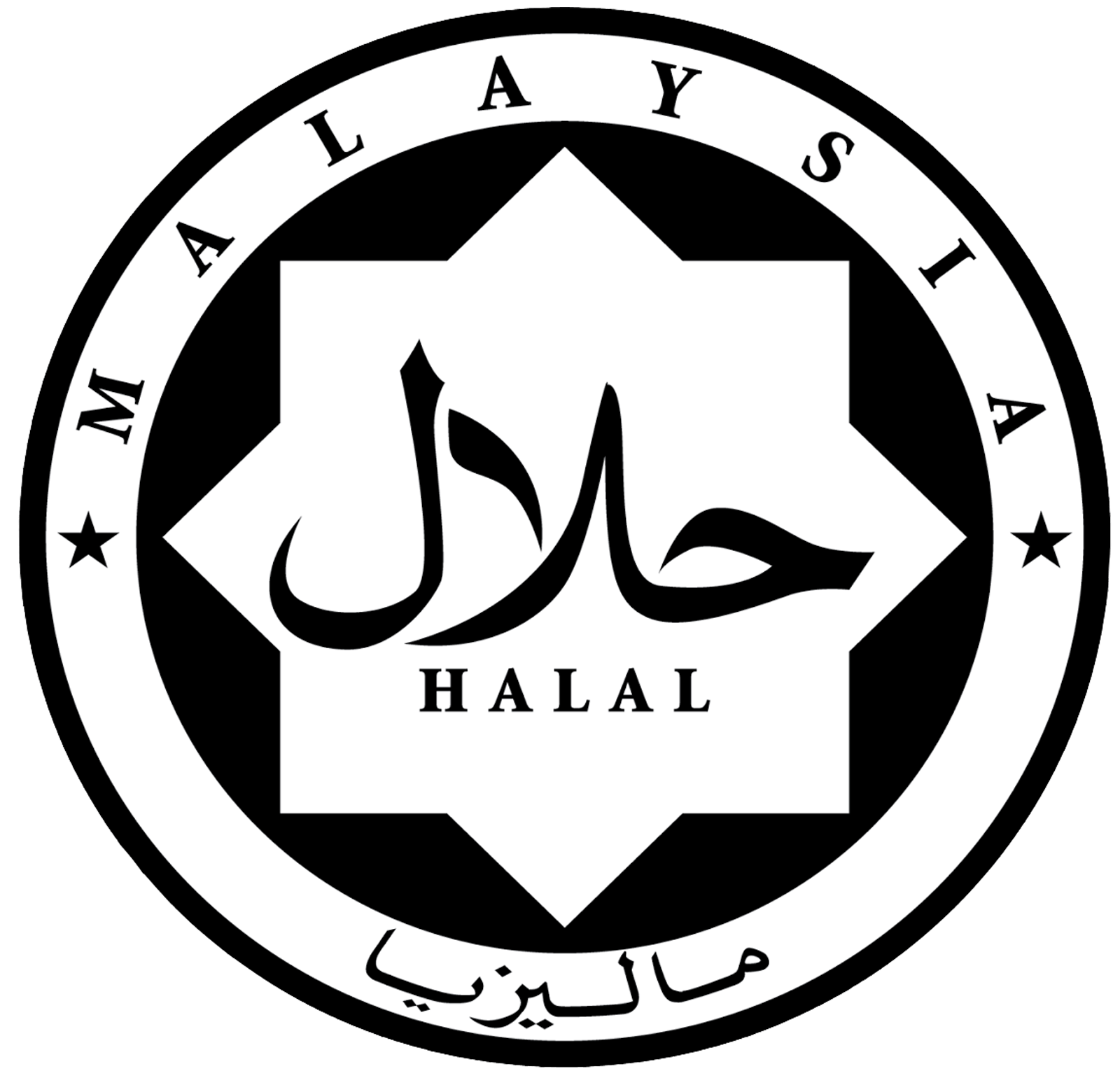Halal, when applied to food, trade, or commerce, signifies that the item is permissible according to Islamic law. It indicates that the food is suitable for consumption by Muslims and aligns with their religious beliefs. When a product is labeled as “Halal,” “Guaranteed Halal,” or similar terms, it assures that:
- The food or products (including private label products) contain no parts from animals forbidden by Islamic law for Muslims to consume, nor have they been slaughtered in a manner contrary to Islamic law.
- According to Islamic law, there are no impure substances in the product.
- It has not been prepared, processed, or produced using equipment or utensils that are considered impure according to Islamic law.
- The product contains no human parts or derivatives prohibited by Shariah and Fatwa.
- It is not harmful or toxic to health.
Certification Flow Chart in Malaysia
Exclusively from JAKIM (Jabatan Kemajuan Islam Malaysia) comes the gold standard for Halal certification in Malaysia. Businesses looking to guarantee their goods and services follow the stringent Halal requirements under the Malaysian Halal Certification Scheme need this certification. We describe here the steps and prerequisites for earning JAKIM certification.

Overview of Malaysian Halal Certification
In Malaysia, JAKIM’s Halal Certification is acknowledged as the only official confirmation of Halal commitment. It is an essential document that unifies, for all industries, the Halal status of goods and services. Choosing the right certification plan from the seven offered is crucial for producers and service providers:
1. Consumer Goods
2. Food / Beverage / Food Supplement
3. Food Premise / Hotel
4. Personal Care and Cosmetics
5. Logistics
6. Slaughterhouse
7. Pharmaceutical Industry
Eligibility Criteria for Halal Certification
To qualify for the Halal certification, applicants must satisfy several prerequisites established by JAKIM:
– The business must be registered with the SSM, Malaysia Cooperative Committee, or another recognized government agency.
– Possession of a valid business license issued by local municipal authorities or other governmental bodies is required.
– The operation must be fully functional before applying.
– All goods produced and processed must be Halal.
– The business must source its Halal food from certified suppliers.
– The application should encompass all goods produced on-site.
– Repackaged items must include a Halal certificate for the original products.
However, there are specific conditions where applications will be considered ineligible, such as:
– Use of branding or names that could confuse Halal-certified products with non-Halal ones.
– Production that could potentially harm religious and societal norms.
– Businesses that include non-Halal items or services, such as kitchens in hotels that also prepare pork-based dishes.

Application Process for Halal Certification
To streamline the certification process, JAKIM requires the following documents to be submitted online:
– Company profile
– Business or company registration
– Detailed product or menu description intended for certification
– List and sources of ingredients
– Information on manufacturers or suppliers of essential ingredients
– Packaging materials
– Manufacturing processes and procedures
– Other relevant certifications (e.g., HACCP, ISO, GHP, GMP, TQM)
– A site map of the premises or factory
All relevant paperwork must be kept in a “Halal Confirmation Certificate” file by applicants during the inspection phase. This meticulous planning ensures that the certification process addresses both national and international market norms.
Simplifying the Halal Certification Journey
Though it may seem difficult, working with seasoned producers can make the process much easier, especially for private label items in food supplements or cosmetics. Businesses that are adept at navigating the complexities of Halal certification, for example, include Ori Bionature. Their knowledge guarantees that candidates not only satisfy all legal standards but also maximize their operations for Halal compliance.
Aiming to establish themselves in the Halal market, companies need more than simply the correct certification. Contacting us is strongly advised if you want to know more about how to do this procedure efficiently and successfully.


HELLO WE ARE ICE CREAM PRODUCER FROM UZBEKISTAN AND WANT TO GET HALAL CERTIFICATE
CAN YOU HELP
Hi there DILSHOD,
Unfortunately, ORiBionature or ORBCosmex does not offer direct halal licensing services for the F&B industry. Halal license/certificate application is only part of the service for individuals or organizations who are interested in manufacturing their food supplements, skincare, and cosmetics with team ORiBionature/ORBCosmex 🙂 Based on the rules set by the certification body.
Hi,
We are looking for an agent to apply halal license for our restaurant.
Please whatsapp me 0122866499.
Hi there Roger,
Thanks for dropping your comment on the article! We’re sorry that ORiBionature & ORB Cosmex does not offer direct Halal license(s) to the F&B sector instead it’s part of ORiBionature’s service that every client is entitled to. If your Halal license inquiry is related to food supplements, skincare, and cosmetics, ORiBionature is more than happy to assist you through the entire process.
Cheers!
Assalamu Aleikum Brothers /sisters,
My name is Ahmed Hassan I am the GM of Albert Halal Monitoring organisation , we want to get certification from Malaysia Halal certification organisation Jakim. Looking forward to hearing from you soon. you can reach me at alberthalalmonitorong @gmail.com
Best Regards,
Ahmed
Hi there Ahmed,
Thanks for dropping your comment on the article! We’re sorry that ORiBionature & ORB Cosmex does not offer direct Halal license(s) instead it’s part of ORi Bionature/ORB Cosmex’s service that every client is entitled to. If your Halal license inquiry is related to food supplements, skincare, and cosmetics, ORiBionature is more than happy to assist you through the entire process.
Cheers!